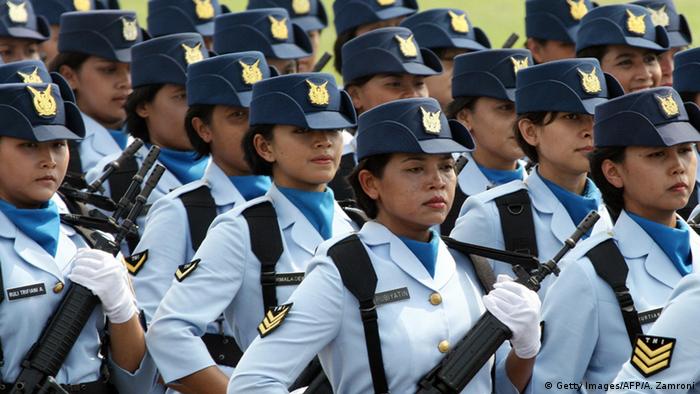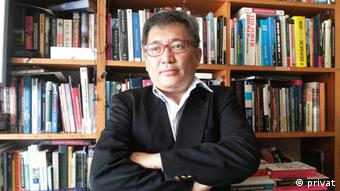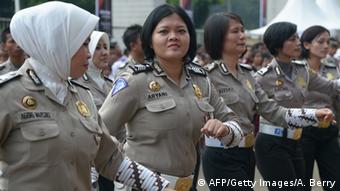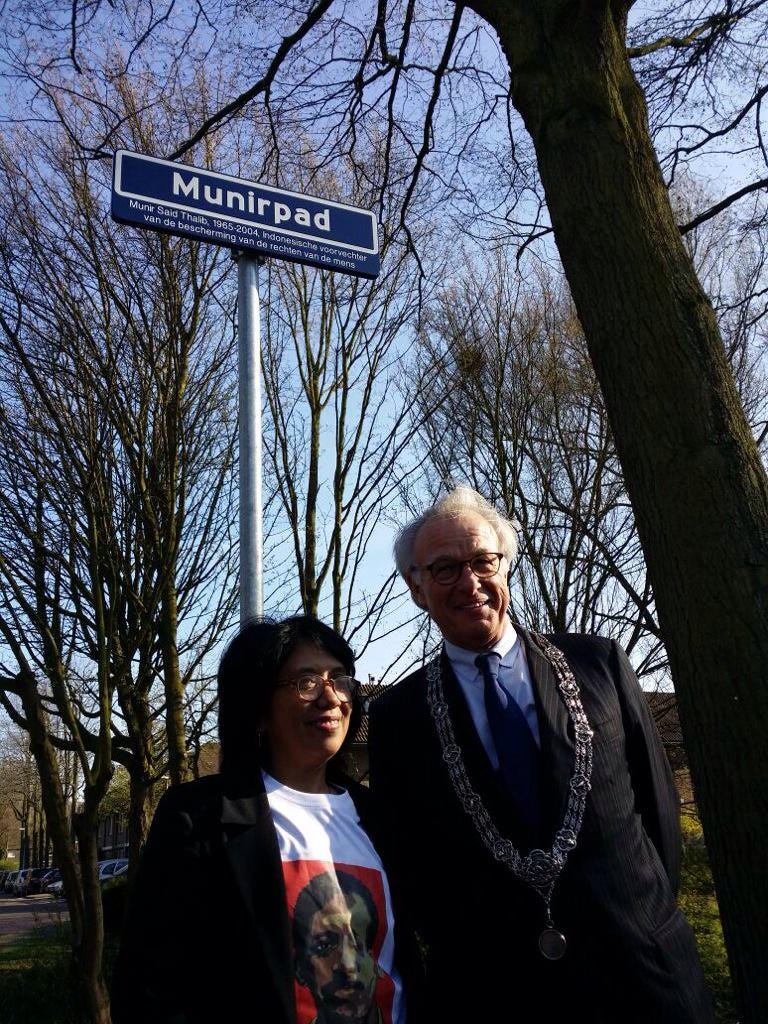Sabtu, 9 Mei 2015, saya kebetulan berada di Jayapura ketika Presiden Joko Widodo menerima permohonan grasi dari lima narapidana Papua. Anum Siregar, pengacara mereka dari Aliansi Demokrasi Papua, minta saya bantu mereka di kantornya, beberapa jam sesudah mereka bebas. Mereka hendak bikin keterangan kepada media. Mereka juga memerlukan tempat menginap. Kelima orang ini adalah petani. Mereka sudah dipenjara 12 tahun.
Minggu, 10 Mei 2015, mereka membacakan pernyataan ini bersama Anum Siregar serta Peneas Lokbere dari Bersatu untuk Kebenaran dan Freddy Pawika OFM dari SKP Jayapura. Lokbere, yang bertahun-tahun bantu tahanan politik, juga minta saya bicara. Saya menekankan pentingnya mereka menjalani medical check up sesudah keluar dari penjara. Mereka akan check up di rumah sakit Dian Harapan, Jayapura, dengan bantuan Pawika dari SKP Jayapura. Dua dari lima orang ini membubuhkan cap jempol karena mereka tak biasa tanda tangan.
 |
| Linus Hiluka menunjukkan siaran media ini dengan tandatangan dan cap jempol. ©Andreas Harsono |
Siaran Media
Kami ingin menyatakan beberapa hal sehubungan dengan pembebasan kami dari hukuman penjara kemarin.
Kami berlima bertemu Presiden Joko Widodo sekitar 15 menit dalam sebuah ruangan tertutup di penjara Abepura. Beliau didampingi Ibu Iriana, Menteri Hukum dan Hak Asasi Manusia Yasonna Laoly serta Wakil Gubernur Klemen Tinal. Presiden mengatakan memenuhi permintaan grasi kami. Beliau mengatakan inisiatif ini datang dari beliau berhubung proses amnesti lebih perlu waktu lewat pertimbangan Dewan Perwakilan Rakyat. Beliau minta maaf atas apa yang dilakukan aparat keamanan terhadap kami selama 12 tahun terakhir.
Kami mengucapkan terima kasih kepada Presiden Jokowi. Namun kami juga minta semua tahanan politik, termasuk dari Kepulauan Maluku, juga dibebaskan. Baik lewat program grasi maupun amnesti.
Presiden Jokowi mengiyakan. “Ini baru memulai,” katanya.
Kami juga minta jaminan keamanan sesudah bebas. Kami tak mau ditangkap dan dicari gara-gara sesudah bebas. Ini bukan hanya buat kami tapi buat semua warga Papua. Beliau mendengar dan menanggapi serius. Beliau mengatakan akan bicara dengan pihak kepolisian dan militer.
Hari ini kami secara terbuka minta kepada Dewan Perwakilan Rakyat mendukung rencana Presiden Jokowi membebaskan semua tahanan politik, termasuk sahabat kami, Filep Karma, yang dihukum sejak 2004.
Mulai besok kami akan menjalani pemeriksaan kesehatan di rumah sakit Dian Harapan. Ada dari kami yang sakit. Bila rumah sakit menyatakan kami sehat, kami akan kembali ke rumah kami masing-masing di Wamena.
Kami mohon bantuan dari berbagai gereja dan negara, dari organisasi masyarakat sampai pemerintah daerah, agar kami bisa kembali ke rumah kami, mengurus kebun dan membenahi kehidupan keluarga kami. Bukan mudah untuk kembali ke rumah sesudah 12 tahun di penjara.
Kami ingat dengan dua rekan tahanan lain, Michael Hiselo dan Kanius Murib, yang ditangkap bersama kami April 2003 namun meninggal dalam masa penahanan. Hiselo meninggal di Makassar pada 27 Agustus 2007. Murib meninggal di Wamena pada 10 Desember 2010. Kami akan mengunjungi keluarga mereka di Wamena.
Kami mengucapkan terima kasih kepada semua pihak yang membantu kami selama 12 tahun terakhir. Kami takkan melupakan jasa baik mereka.
Apotnalogolik Lokobal
Jefrai Murib
Kimanus Wenda
Linus Hiluka
Numbungga Telenggen



